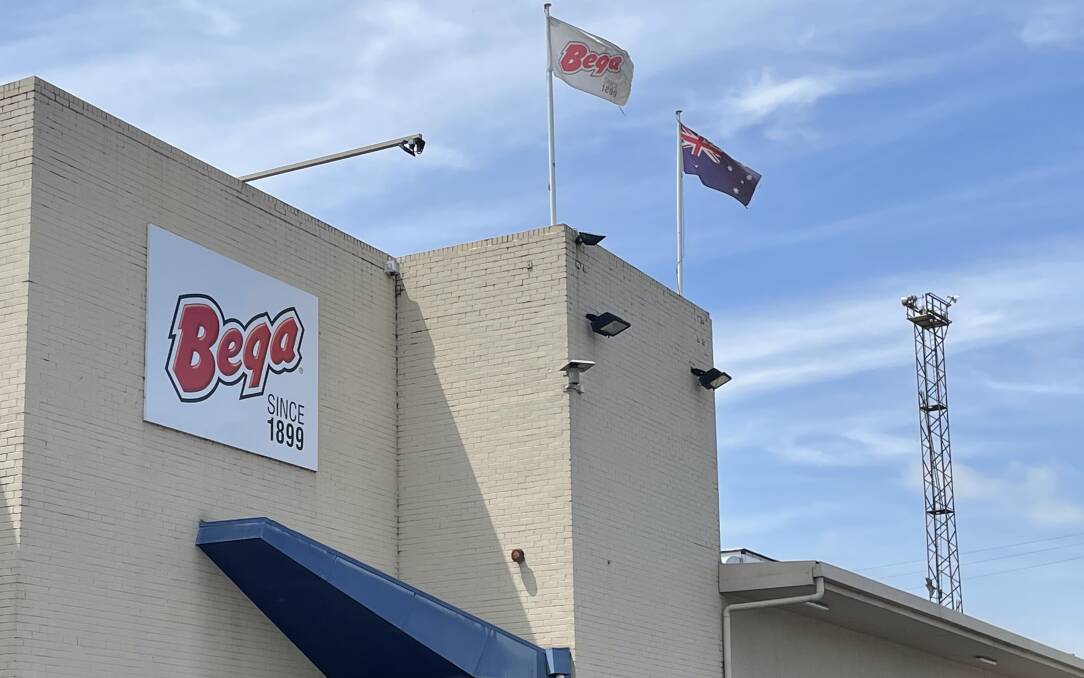
Dairy processors have been told to stop moaning about Australia's high farmgate milk prices and shrinking production volumes and focus on ensuring farmers continue receiving the financial incentives they deserve to stay farming.
Subscribe now for unlimited access to all our agricultural news
across the nation
or signup to continue reading
"The big costs involved in running a dairy farm are no different to running a dairy company - we need a fair return to stay in business," a frustrated farmer shareholder told Bega Group's annual general meeting this week.
While congratulating the national dairy and grocery business for rushing to adjust prices to as much as $9.55 a kilogram (milk solids) in the past two years as processors scrambled to secure enough volume, he was fearful recent price peaks may be short-lived.
Too often dairy farmers were simply paid "what's left" after shareholders and processing costs took their cut, he said.
Yet, even dividends to Bega's farmer suppliers, who represent a big portion of its shareholder base, "didn't cut the mustard".
He foresaw more farmers quitting dairying if processors were not more proactive and offered next generation producers a future with income and investment security.
Market 'disconnect'
Bega Group chief executive officer, Pete Findlay, had earlier told the AGM price disparity between Australia's high farmgate milk values and depressed global dairy commodity prices represented an $18 million "disconnect" for the company's bulk commodities earnings in 2022-23, compared with 2021-22.
Australia's milk production decline since 2002 - from 12 billion litres to about 8b - and increasing competition for milk from processors with too much underutilised infrastructure (which previously supplied offshore markets) had driven a significant gap between farmgate prices and dairy commodity markets.
Fortunately, Bega's domestic milk and other short shelf life brands had met the challenge delivering higher local earnings and volume growth to help cover increased farmgate costs and other inflation hits.
However, responding to the company's milk shortage and global price concerns, the shareholder argued Bega and other dairy players should not be surprised or resentful about Australia's high farmgate prices.
Until recently the milk market had barely moved for 20 years.
"These milk prices should have been factored into the system years ago," he said.
We are in agriculture - it's always a volatile space
- Barry Irvin, Bega Group
In reply, chairman Barry Irvin, fully agreed farmers needed good price incentives, but there was no point Bega buying farmgate milk for more than its own customers could afford to pay for products further up the food supply chain.
"I'm not going to sugar coat this. We are in agriculture - it's always a volatile space," he said.
"We're very much part of a global supply chain, just like sheep and beef producers currently feeling the full force of market volatility.
"At the moment, in dairy, there are enormous volumes of imports arriving here from New Zealand."
Cheaper raw milk prices across the Tasman meant processing costs and exports were more competitive.
He argued Bega had been very proactive in responding swiftly to recent market pressures, adapting its processing, logistics and marketing strategies to get the best possible return for farmers and shareholders, while also supplying customers at prices which generated a fair return.
"That's the reason this company has survived when so many other dairy businesses have mis-stepped," Mr Irvin said.
He, too, wanted his son and grandchildren to feel confident about their future in the industry.
Share price anger
Meanwhile, from the other side of the room Bega management and its board of directors copped a serve from shareholders criticising the company's flagging share price.
Bega shares were trading around $6.45 each in mid-2021, but just $2.90 early this week, down about 28 per cent in the past year alone.
Shareholders questioned why independent directors and processing sector specialists Peter Margin and Terry O'Brien deserved to be re-elected.
One also questioned why the whole board should not be replaced.
Mr Irvin said the current share price gave nobody any pleasure.
He did not believe it reflected the company's true value or response to recent market pressures.
I think we're all aware of what short selling can do, and I'd probably agree it should be banned
- Barry Irvin, Bega Group
In fact, he estimated almost 5pc of current share trades were being deliberately short sold by some traders, with that figure being even higher in the past.
"I think we're all aware of what short selling can do, and I'd probably agree it should be banned," he said.
"This company will still performing very well going forward despite the significant headwinds and volatility we've encountered.
"Anybody close to Bega Group would recognise the extraordinary volatility we've been through, starting with COVID and its record distribution costs and disruption which needed managing in a calm, controlled way."
He said Bega's next response to global commodity market fluctuations after Russia invaded Ukraine and other cost pressures took time to manage but those costs had been passed on and its market channels were performing well.
Cool, calm and experienced heads had prevailed as the company had managed a "dynamic year" of many changes and challenges.
Mr O'Brien and Mr Margin were re-elected to the board with majorities of 68pc and 86pc respectively.


